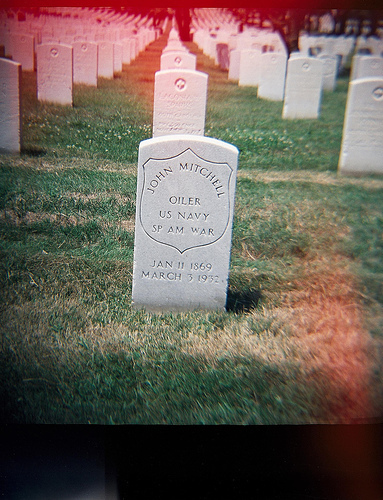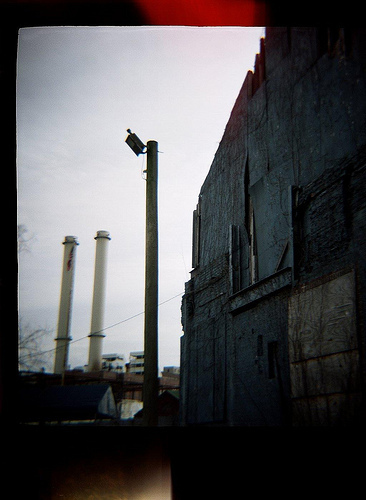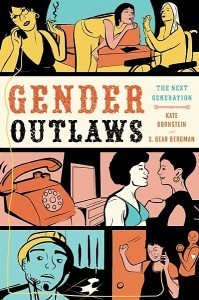Sara Ryan's Blog, page 15
September 17, 2012
Moody detours

Lately I’m feeling prone to moody detours.
By definition, detours take us out of our way. They prolong our journeys, routing us through places we hadn’t anticipated visiting.
When we encounter a detour, work is often in progress to address its cause. Someone’s sawing up the fallen tree and moving the logs. Someone’s filling the pothole. Someone’s cleaning up the metal and glass.
The metaphor falls apart right about there. I don’t think a crew is removing obstacles and smoothing our mental roads while we brood. (And if they were, that might be a little worrisome in and of itself.)
But going somewhere unexpected can be good.
Even if it’s because we couldn’t get where we wanted to be the way we planned.
September 5, 2012
Interview with Kio Stark, author of Follow Me Down
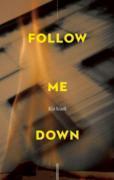
I started following Kio Stark’s writing on her blog, Municipal Archive, and loved her novel, Follow Me Down. My capsule description: noir where the antihero and the femme fatale are the same person.
She was kind enough to answer some questions below. They’re maybe a little spoilery, but I don’t think too much, since simply knowing that the tone is noir hints at the story’s likely trajectory. But if you haven’t yet read it, you can do so online. I encourage you also to purchase it. The interview is punctuated by her photos.
SR: I love the way your protagonist Lucy uses photography as a way to simultaneously study and distance herself from her surroundings. Did your own photography influence Follow Me Down?
KS: Absolutely. Lucy is by no means a disguised version of me, but there are ways in which she sees with my eyes. I have a habit of photographing the places where people have been and are no longer, and I use toy cameras a lot. They’re rangefinders, which means that there’s no mirror – so what you see isn’t precisely what the lens sees. They have light leaks and bowed plastic lenses. It’s a way of trying to make beautiful things with uncontrolled conditions. I didn’t think about it until you mentioned distancing and photography together. The reliance on accident is also a way of distancing yourself from what you create.
SR: When Lucy & Jimmy have broken into the vacant lot and he worries about them being visible in her pictures, she says, “It’s okay, we’ll just be ghosts.” It seemed like that was often how she wanted to move through the world; spectral, barely discernible, disconnected from humanity. What was it like to write from the point of view of someone so deeply uncomfortable with forming close relationships?
KS: Lucy’s emotional landscape was very lonely and also very free. It’s like the moment you arrive in a new place, or the conversations you have in diners on the long drive from the place you left to the place you’re going. For most of us, those limbo times are exciting, because the disconnectedness gives us freedom, and nothing is decided yet, and we know we will make choices and step back into the anchored world a little more like the person we want to be. Lucy stays in limbo. She has freedom there, but she also can’t change. The traditional trajectory would have been for her trouble with closeness to resolve somehow at the end, and in a way I was rooting for Lucy to find some comfort in love, but she never did come around to it.
SR: Lucy’s skill in finding mistakes in documents resonates well with the way she observes the people around her in the city; she’s always looking for how things go wrong. At what point in your writing process did you decide that she worked as a proofreader?
KS: Oh that was very early on. I had her in an office and I thought, what does this woman do? She notices tiny details. It started with imagining her at a desk and trying to understand what she would be doing there, not with thinking up a job for her.
SR: Follow Me Down is such a big-city story. Would you ever want to write something set in a non-urban environment?
KS: That’s a great question. My imagination is pretty urban. I remember the streetscapes of a dozens of cities I’ve seen in dreams. I’ve been working on something for a while that’s set in a smaller city, more like a sizable broken down factory town. What holds me in the urban realm is what cities look like, and also the way that cities run on the minute electrical charges generated by the passing of strangers on the street.
SR: Did you know when you started how the book was going to end? If not, when did that become clear to you?
KS: I did not know. In fact, the first draft had a totally different ending. It turned into a very elaborate sort of con story, with everything folding in on Lucy at the end. My boyfriend read it and asked me, why does this have to be a con? He said, it feels like you’re hiding something emotionally true about Lucy by taking the agency out of her hands. So I thought, ok, what’s true here is her deep immersion in the search. What’s driving that if you take away the outside forces luring her into it and teasing her along? What does it mean to get lost, to be found?
September 3, 2012
Textures, geometry




The first is between a couple of restaurants in northeast Portland, the latter three are all from the exterior of a former elementary school, closed due to asbestos and mold.
August 31, 2012
Photo post
Because I haven’t done one of these here for a while, and it’s Friday:
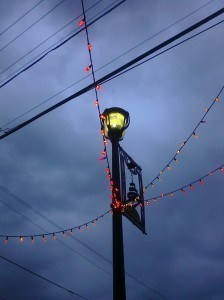
Geometry.

Genuine Parts.
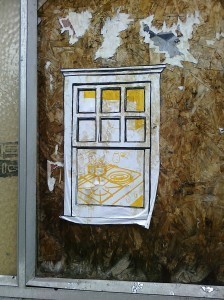
Not actually trompe l‘oeil, but.
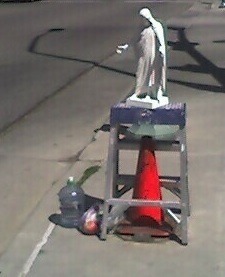
Witness the faith evidenced by leaving the Lord to watch over your ladder, water, hazard cone and — I think — lunch.
August 27, 2012
Getaway. Or not, as the case may be.
Last weekend was supposed to be a getaway, and it was, for a while.

But there are some things you can’t get away from.

Being in a lovely place when those things once more demand your attention feels like a knife-twist reprimand: how dare you? What right have you got to be happy when the horrible things that have been happening are still happening?

At least that’s what the accusatory voice in my head asks at such times.

I don’t have a good answer for it.
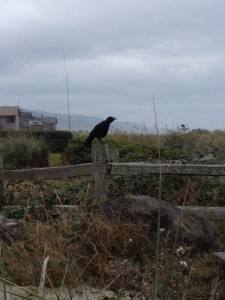
Except, maybe, that horrible things are always happening, close to home or farther away. And you can conclude from that hard truth either that no one has the right to be happy, or that we all do; that we need, in fact, to take happiness whenever and wherever we find it, and use the strength we gather to do what we can to make the horrible things better.

This has been brought to you by the Society For Cryptic Posts Punctuated By Lovely Landscape Photos.
August 15, 2012
A lot can happen in eleven years.
Unsurprisingly, the Empress reissue has coincided with other evidence of the passage of time since its original release in 2001. (I mean, aside from me just every so often saying, “Geez, has it really been eleven years? Dang.”)
Most recently I was delighted to hear from one of the book’s early supporters, who as a teenager arranged one of my first events with a gay-straight alliance in Washington.
Now that reader, Kyle Lukoff, is a school librarian who’s just finished writing a YA novel of his own. He’s also published an essay, “Taking Up Space,” in Gender Outlaws: the Next Generation, edited by Kate Bornstein and S. Bear Bergman. Go, read, and remember the name.
August 13, 2012
Various, sundry.
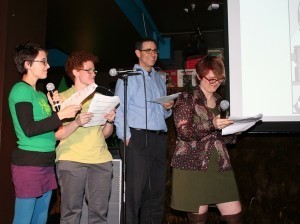
I’m not the most intrepid of cyclists, but there are certain times of year where biking goes from sounding like the worst idea in the world to the best. Now is one of those times. I’m enjoying experiencing the city differently; riding through scents and sounds.

I’ve been attempting to implement a standing desk like we’re all allegedly supposed to do because apparently prolonged sitting is the worst thing ever. So far the actual standing is a breeze, but I keep having to fuss with the keyboard + mouse setup so as not to court repetitive stress injuries due to sub-optimal heights/angles. Damned if you do…
Working on a website redesign, by which I mean that the intrepid Space Ninja is working on it, helped and/or hindered in this task by periodic enthusiastic emails from me: “HERE ARE TEN MORE AUTHOR SITES I LIKE, ALL OF WHICH LOOK TOTALLY DIFFERENT.” Contemplating what should live here vs. on Tumblr. If you have thoughts about things that should absolutely be here, or not, please to let me know!
August 2, 2012
Well, hello.
Finally, I can tell you all some news I’ve been wanting to share for a long time.
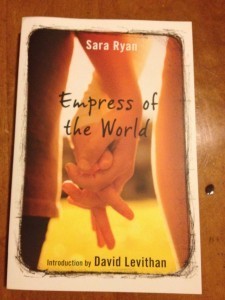
If you’re thinking: Hmm, that copy of Empress looks a little different. More…substantial, somehow…
I must congratulate you on your keen perceptive eye.
The book has been reissued, and it now includes:
A lovely introduction by David Levithan
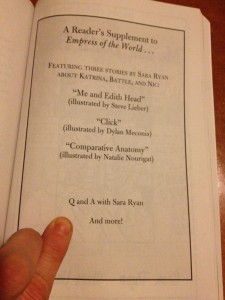
Not one, not two, but THREE short stories featuring characters from the book:
the Eisner-nominated “Me and Edith Head,” with art by Steve Lieber, about Katrina Lansdale, which takes place before Empress happens
“Click,” with art by Dylan Meconis, about Battle Hall Davies, which takes place between the events of Empress and The Rules for Hearts
and the brand-new, never-before-published “Comparative Anatomy,” with art by Natalie Nourigat, about Nicola Lancaster, which takes place after the events of both novels
Plus a Q & A with me, a recommended booklist, an exercise in musical archaeology wherein I construct a playlist based on my vague memories of what the heck I was listening to when I was writing Empress, and a preview of the companion book, The Rules for Hearts.
This new edition, with all the super-cool new material, only exists because fabulous people like you have been supporting my work for more than a decade. I’m so honored that my books are still finding new readers, and I’m thrilled that the Now-With-Way-More-Stuff-In-It version of Empress is out in the world!
July 30, 2012
Interview with Jen Violi, author of Putting Makeup On Dead People
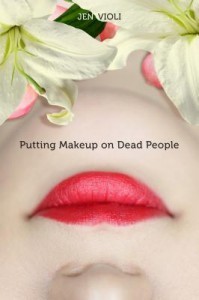
If you have not yet discovered the lovely work of Jen Violi, you’re in luck: her acclaimed first novel, Putting Makeup On Dead People – about a girl named Donna who disconcerts her friends and family when she realizes she wants to become a mortician — is now out in paperback.
You’re also in luck if you have a book of your own that needs some help, or if there’s anyone in your life (including yourself!) who could benefit from a love note. To mark PMODP’s paperback debut I asked her some questions, which she kindly answered below.
SR: What was the first spark of the idea for PMODP? Also, how would you suggest pronouncing PMODP?
JV: Well the first spark for PMODP went off in late summer, 2005, just as Hurricane Katrina was brewing—I’m not sure how to feel about that connection. Part of me hopes that PMODP was generating an equally powerful creative, rather than destructive force, to balance things out. Regardless, the spark was a short story, in which I first met Donna. In that incarnation, she was thirty-something and realizing she wanted to be a mortician. I dug into that short story that fall, while I was in Dayton, OH, evacuated from my then home in New Orleans. After that, I couldn’t stop writing Donna stories.
As for pronouncing PMODP, I’m thinking Pamodpa, which actually sounds like some sort of ancient blessing/salute/festival, don’t you think? So Sara, a fine Pamodpa to you.
SR: What was your research process like for the book?
JV: Just after I started writing about Donna and her mortician urges, I got a message from Suzanne, a former student who was writing to let me know she had decided to start mortuary school. I love synchronicity! So Suzanne became my go-to person for research. We had long phone and email conversations about smells and visuals and all kinds of things I would never want to do myself. Beyond that, I grew up knowing loss first hand, particularly the loss of my own dad as I started high school. So as a young person, I spent lots of time in funeral homes. That setting and all of the feelings and thoughts and experiences that went with it got into my system, and finally found a productive outlet in PMODP.
SR: At what point did you decide to include the notes about the various different funerals? My favorite part in those is “Dumbest thing someone says in an attempt to be comforting.” Did you start with any real-life inspirations for people saying similarly dumb things?
JV: The death notes was a brilliant idea from my brilliant editor, Tamson Weston. And it gave me a great forum to unleash more of that funeral home stuff I mentioned above. Some of it certainly came from real life experiences. For instance, I developed a special loathing for the statement, “Everything happens for a reason.” As someone who watched her dad die of bone cancer resulting from the immune deficiency that came from the Lupus that plagued him for ten years, I found it not the least bit comforting to think that God (who was identified as the most likely suspect at the time) would have given my dad those diseases for a reason that somehow made them worth it. Crappy, hard stuff happens, and I don’t think there has to be a good reason. What I think is more important is the meaning and the framing we can give to events after they happen. For instance, I could have chosen to be a victim of loss my whole life, but instead, I choose to be someone who can find the transformation and healing possible after experiencing loss.
SR: Your book makes a very strong case for the importance of rituals in helping people to get from one mental/emotional space to another. Did you perform any rituals while writing it, and/or do you have any to recommend for others?
JV: Rituals are crucial to my well being. For me, a ritual is very basically bringing awareness and intention to a moment or an action; it’s a reminder that I’m entering sacred space. For instance, when writing the final version of PMODP, I always started writing time by listening to the soundtrack from Slumdog Millionaire.
Jai Ho, from the Slumdog Millionaire soundtrack.
Even now, when I hear those songs, I get a little buzz, an urge to create. As I worked on it, before I started working with my wonderful agent, Jason Anthony, I often also lit candles and held the intention that my book would find its way out into the world. I suppose we could say that worked. Or at least it didn’t hurt!
And I still explore the connection between ritual and writing. Rite and write. My own take, after looking a bit into the etymology of those words is that combining rite (which can mean “a way”) and write (which can go back to scrawling or carving on cave walls), can mean that writing is actually carving a way forward. At least it is for me.
I love recommending rituals for others, and I love encouraging people to design them for themselves. I think the best rituals are infused with our own energy, intentions, and objects we love. A very simple one, that might appeal to your readers, for refreshing the energy in a writing space, would be this:
Light a candle and make a list of hopes or intentions for the writing space.
Then turn on music you love, and clean the space. Dancing while cleaning is always helpful.
When you’re done cleaning, put something or things in the space that inspires you—flowers, art, etc (amongst other things, next to my writing desk I have a piece of art by my friend Ashley—it’s a line drawing of a little girl looking up at a beautiful big globe and the title is “and the weight of the world felt light in the air”).
To conclude, make a list of all that you’re grateful for in terms of your writing—people who have helped or inspired you, life experiences, gifts, etc—and read it out loud. Gratitude and acknowledgement are powerful tools. Our words are also powerful, and sharing them in our spoken voices adds an extra kapow.
Blow out the candle and eat/drink something to ground yourself.
Make a point in the next few days of reaching out to someone you’re grateful to and say so.
Thank you so much, Sara, for such wonderful questions and for giving me the space to respond. You are a gift. Pamodpa.
SR: My pleasure! Pamodpa, y’all. And if you’re in Portland, come on over to A Children’s Place on Wednesday at 7 pm, meet Jen, and get your very own Pamodpa!
July 27, 2012
Two futile wishes
Futile wishes of the day:
I wish the cat would decide that a comfortable life indoors would suit him better than free-ranging punctuated by serious-injury-producing altercations.
I wish projects would take as long as I initially, optimistically estimate they’re going to take, and not the inevitably longer amount of time they actually end up requiring to complete.
Yours in malaise, S.

